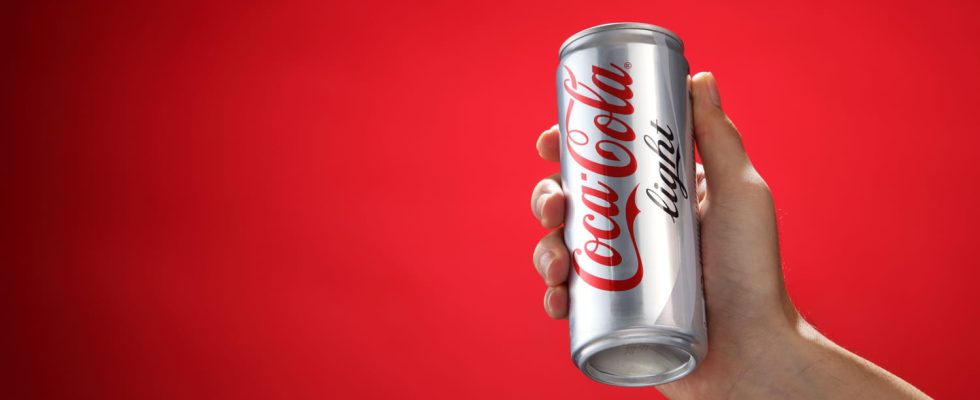A key ingredient in diet sodas such as the famous “diet Coke” is in the sights of the WHO’s International Center for Cancer Research (IARC).
A key ingredient of the low sugar sodas as the “Coke Light” should be officially classified as “probably carcinogenic to humans“ by the International Agency for Research on Cancer (IARC) of the World Health Organization (WHO), according to the news agency Reuters. The IARC uses 4 levels to classify products according to their risk:
- Category 1: carcinogenic
- Category 2A: probably carcinogenic
- Category 2B: possibly carcinogenic
- Category 3: Unclassifiable
I’ingredient in the line of sight health authorities is not new. It’s a sweetener artificial used since the 1980s, low in calories and whose sweetening power is about 200 times greater than that of sugar. It is known asaspartame. “The IARC Monographs, a program for the identification of carcinogenic hazards, have never evaluated aspartame. Due to the availability of new search resultsaspartame has been recommended as high priority for an evaluation” explain it IARC on his site. The Joint FAO/WHO Expert Committee on Food Additives (JECFA) is also reviewing the use of aspartame and will announce its findings the same day as IARC. “The IARC will assess the potential carcinogenic effect of aspartame, while the JECFA will update its risk assessmentincluding the revision of the Acceptable Daily Intake and Assessment of Dietary Aspartame Exposure. The results of these assessments will be made public jointly July 14, 2023” specifies the IARC. The health effects of aspartame were evaluated in 1981 by JECFA and an acceptable daily intake was determined at 40 mg/kg body weight per day.
In Europe, aspartame is authorized as a food additive to impart a sweet taste to various beverages, desserts, dairy products, chewing gum, low calorie and weight loss products “and also as a table-top sweetener” recalls the European Food Safety Authority (EFSA). In March 2022, French researchers had analyzed health and sweetener consumption data from 102,865 adult participants in the NutriNet-Santé cohort study. Their results, published in the journal Plos Medicinehad already highlighted a association between the consumption of sweeteners and an increased risk of cancer.
